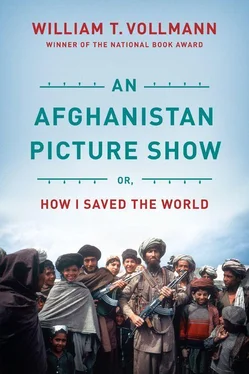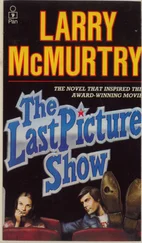Why I failed: A letter from the General (1984)

My dear Bill,
Thanks for your nice letter. There is an old saying — Health is wealth. You ought to take good care of your health. Three things are needed for every Project:
a. brain
b. hands — Physical fitness to do things
c. money.
You have the brain — but you are not physically fit and you have no money — hence forget about the AFGHANS — for the time being. My advice to you is to get down to serious profession — any of your own choice.…… and take good care of your health………… “ROOS” is at our doorstep.…… We will keep her at a distance ourselves, if we live as Muslims..… The other day a young Afghan orphan boy came to see me. He had a bullet injury in his head. A C.R.C. ‡doctor removed it but he has gone blind now..… Surely they could arrange Eye transplant etc…… “T.B.” is on the increase — sitting in America you can’t appreciate the problems of the Refugees in Pakistan and the problems inside Afghanistan.
More in my next.
With best wishes,
Yours sincerely,
THE END
* “Bottles! Bottles! Soda! Cold!”
† “Bill,” wrote the General six months later, “get well soon. If the American Doctors can’t take care of you — come back to Pakistan, we shall look after you. The weather is nice and chilly. Please accept Xmas and New Year’s greetings from all of us. May the New Year bring happiness and prosperity. Are you still reading the holy Qur’an?”
‡ Committee of the Red Cross.
A letter from the General (1987)
Bill — your First Book is a “hit”—now get down to serious business of writing. I read the book reviews at least ten times and side-lined/under-lined the remarks — try to eradicate your failings in printed ink.
Your book on Afghanistan must reflect the following:
a. Afghanistan — its importance to the Free World & USA, if any, prior to the Russian invasion.
b. Why Russia invaded Afghanistan. Has Russia achieved its aim?
c. How the Afghans kept the Russians — a superpower — at bay! with outmoded weapons.
d. Will the Russians quit Afghanistan — for good.
e. Spell out the Russian and the USA interest in clear terms, in this Region — before invasion, during invasion and after the Russian pull-out.
f. The role played by Pakistan — its physical and economical contribution — Afghanistan’s impact on Pakistan’s economy.
g. Has the Free World adequately compensated Pakistan and the victims of Russian aggression by air and blasts?
h. A friend in need is a friend indeed. Has Pakistan lived up to this role?
I ask the reader: What would your list of important issues be? Have I addressed them? How can you help?
The Soviet view (San Francisco, 1987)
Because I am a believer in the Fairness Doctrine, I decided to contact the consulate of the U.S.S.R. to obtain their opinion of this book. Here is what I wrote.
3065 Pacific Ave.
San Francisco, CA 94115
6 November 1987
Consulate General of the
Soviet Union
279 Green Street
San Francisco, CA
Ladies and Gentlemen:
…Being somewhat of an empiricist, I place a high value on what I see and hear myself. It causes me some regret, therefore, to admit that when I was in Afghanistan I never spoke with Soviet or pro-Occupation personnel. This makes my book seriously flawed. I have, of course, read a few key documents which present the Soviet point of view: the 1980 interview with Brezhnev given shortly after Babrak Karmal took office, those two or three of Babrak’s speeches which are available, some Tass statements, etc. But the fact remains that almost all of my sources have a very strong anti-Soviet bias.
For this reason, I would like to give you the opportunity to read and comment on the manuscript draft of my book (which is about 250 double-spaced pages). Any suggestions or corrections to errors of fact would be gratefully appreciated. I frankly believe that the Soviet presence in Afghanistan is wrong. I do my best to make my readers believe this, too. I challenge you to convince them otherwise. If you care to comment on the book, I will give you five or ten pages in it to do so. I will not edit or alter your remarks in any way without your permission. If you sincerely feel that the views of my book are in error, well, as Lenin said (“All Out For the Fight Against Denikin!”), “All our agitation and propaganda must serve to inform the people of the truth.” If not, your silence will speak for itself…
Yours truly,
William T. Vollmann
Their silence spoke for itself.
CHRONOLOGY
1734–1979
This is a story about how various big fishes gobbled up the little fishes and then turned their attention to a certain medium-sized fish…
1734The Russians make conquests in Kazakhstan.
1747Afghanistan is unified under Ahmad Shah in an absolute monarchy.
1765The British take Calcutta.
1813Persia signs the Treaty of Gulistan, yielding most of its territory in the Caucasus to Russia.
1828Persia signs the Treaty of Turkmanchai, relinquishing the southern Caucasus to Russia.
1837Lord Auckland, Governor-General of India, sends a Captain Burnes to Kabul “to work out the policy of opening the River Indus to commerce.” Meanwhile, the Tsar sends a Captain Vitkievitch on the same errand.
1838The British undertake the forcible restoration of Shah Shuja to the Afghan throne, a project which launches the First Afghan War (1838–42). Severe casualties are inflicted on both sides.
1839The first Russian attempt to conquer Bokhara fails.
1842The First Afghan War having proved to be a disaster, the British withdraw from Afghanistan, paying compensation and leaving hostages. Later they take their retribution, and a Colonel Sutherland writes, “It is a comfort to be able to look a native in the face again with confidence.” Then they leave again.
1843Sind falls to the British.
1844Russia and Great Britain agree to act in the spirit of Count Nesselrode’s memorandum, which recommends that the two powers preserve the internal peace of Persia by leaving Bokhara, Khiva and Samarkand as buffer states.
( 1846Kashmir falls to the British .
1849The Punjab falls to the British .)
1853The Crimean War ends this happy cooperation.
1855The Afghans annex Kandahar, which, with Herat, has often changed hands between Afghanistan and Persia.
1856The Persians seize Herat in retaliation, and announce that they will next occupy Kandahar and establish themselves on the borders of the Punjab, a British area. The British therefore join cause with the Afghans against the Persians and defeat them.
1859The British occupy Baluchistan.
1863The Afghans regain Herat.
1865The Russians occupy Tashkent.
1867The new province of Russian Turkestan is established. Bokhara falls to Russia.
1869Referring to the Nesselrode memorandum, the Russian Prince Gortchakoff suggests Afghanistan as the next buffer zone. The British put him off, saying that the frontiers are too ill defined.
Читать дальше













